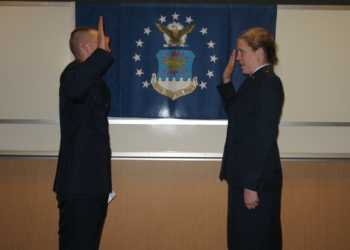
Being the new kid in school is never easy. For students of military-connected families, it’s a regular occurrence, with active duty often requiring relocation every few years.
As these families move – often to different states – the children of service members must repeatedly adjust to new schools, academic expectations, and social environments. It’s for this reason why education can begin to feel like a moving target. As a result, many military-connected families are pivoting to virtual education, which presents a new opportunity for K-12 students to receive the stability and ongoing specialized support they need.
As an educator with deep family ties to the military, I understand the challenges of these students firsthand. My father served in the Army for 33 years, and my mother was an Army nurse. Having moved five times before my father retired, I know what it’s like to start over in a new school. This experience helps me empathize with my students and ensures I can better support their needs.
Virtual education is uniquely positioned to support military students by offering consistency despite geographical changes. At TOPS, students can continue their education uninterrupted – even if their family moves out of state! They benefit from maintaining the same peer group, academic expectations, and school culture throughout their educational journey. This stability is invaluable in reducing stress and fostering academic success.
Changes in curriculum and graduation requirements are another pain point for military-connected students. High school students specifically may find that credits don’t always transfer seamlessly, potentially delaying their path to graduation. At Texas Online Preparatory School (TOPS), we help military families navigate these obstacles by providing clear guidance on Texas graduation requirements and offering academic support to ensure a smooth transition.
Another major hurdle is the social disruption caused by frequent relocations. Making new friends, adapting to new school cultures, and dealing with the emotional strain of deployments can be overwhelming. To address this, we create opportunities for military students to stay connected. This includes hosting special social sessions, providing extra academic support to ensure students aren’t falling behind, and offering accommodations for assignment deadlines. Although military-connected students tend to be highly responsible, managing their workload can be especially difficult during transition periods. We recognize these challenges by offering them the resources and encouragement necessary to succeed.
Military families make significant sacrifices in service to our country. As educators, it’s our responsibility to support their children as best we can.
For military-connected families who are struggling with traditional school models, I encourage them to consider virtual education. Making the transition has the potential to provide their children with the support, continuity, and empathy that are vital to their growth and success.













































